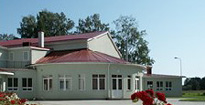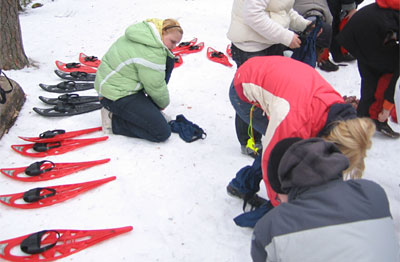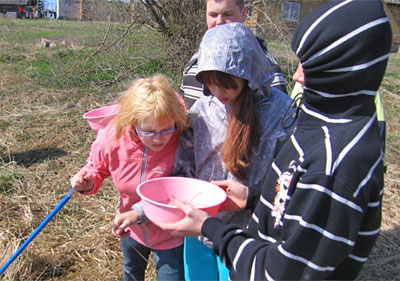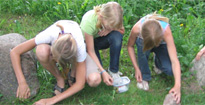
Schools around the world inspired by Charles Darwin:
Kääpa School in Estonia, where pupils had to put on snow shoes to go exploring in winter.

While studying nature, teacher Aiki Jõgeva found that it didn’t take much to impress her younger classes.
“The pupils saw mostly very common species – but for them a nuthatch or a dragonfly’s larva or a woodlouse was very special."

“Students in form 5 very much enjoyed looking for insects in our school park. It was exciting for them to find a creature under a stone or watch ants on their way up the tree.”
 As well as watching insects, the children listened to birds and gradually learned to tell one bird’s song from another – something which they didn’t find easy.
As well as watching insects, the children listened to birds and gradually learned to tell one bird’s song from another – something which they didn’t find easy.
Aiki found that the international link added an extra dimension to the children’s work. “This project was another good reason to go out and explore nature. It was interesting to know that lots of students in other countries were doing the same.”
 Read more stories from schools inspired by Darwin
Read more stories from schools inspired by Darwin
How did they do that?
Aiki Jõgeva teaches at Kääpa School, Estonia, and took part in the Field Studies Council's international schools project, In Darwin's Footsteps.
She offers some advice to schools considering twinning for the first time: “Enjoy new opportunities, be open to new ideas. You can start from little things. My experience is that some links can last for ten years or longer and every co-operation widens the horizons.”
Join BBC World Class and our partners will help you twin.
The BBC is not responsible for the content of external websites.